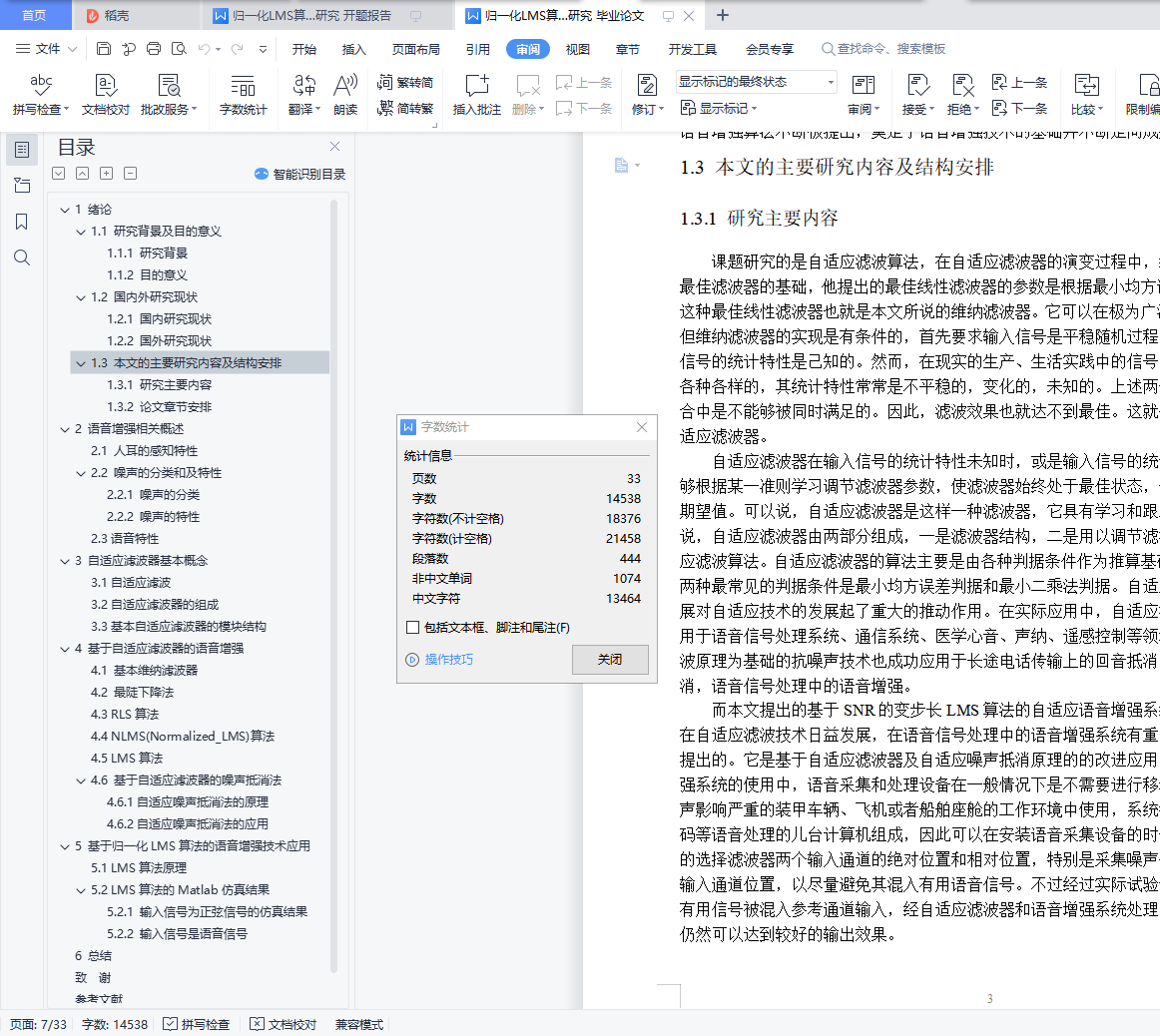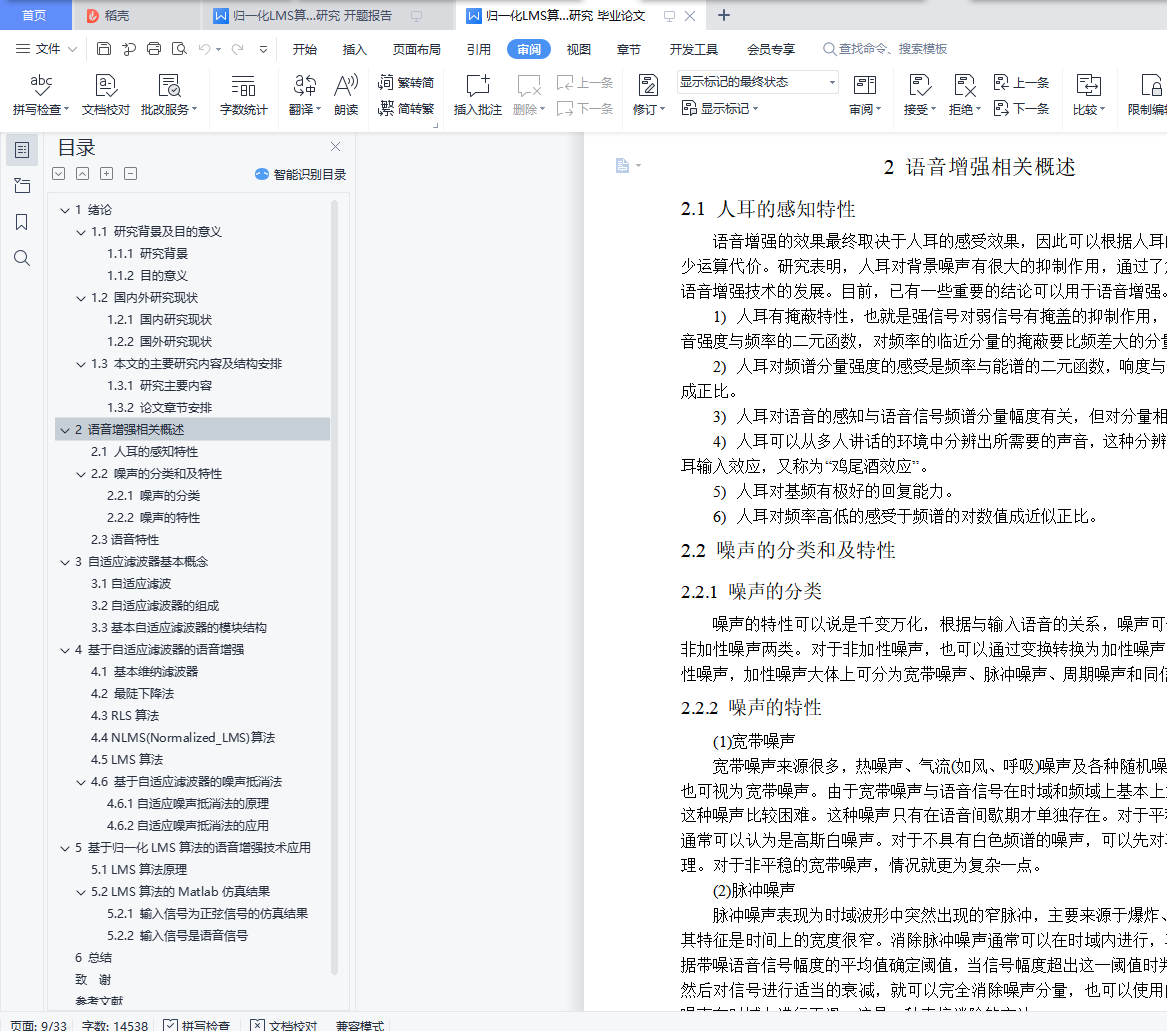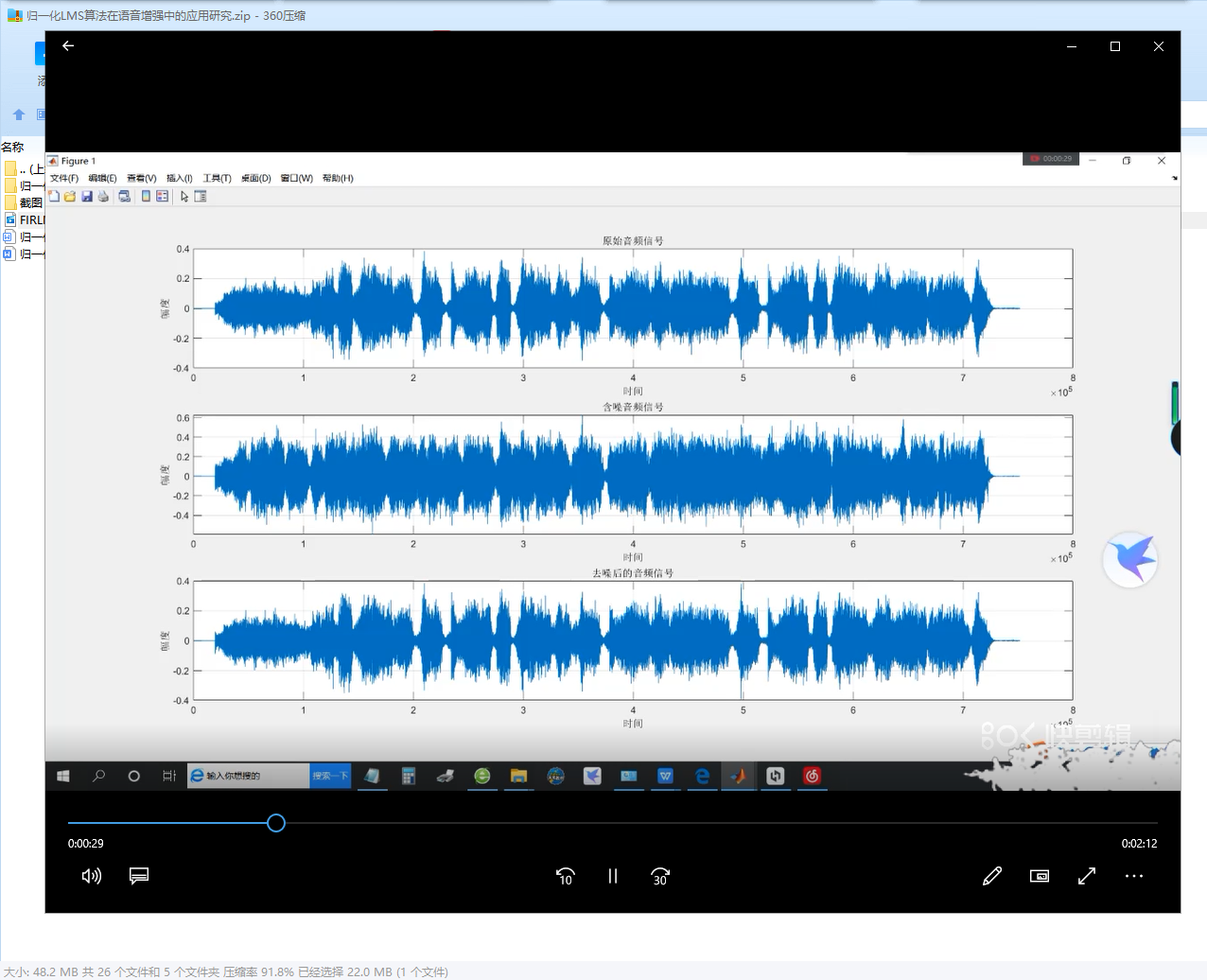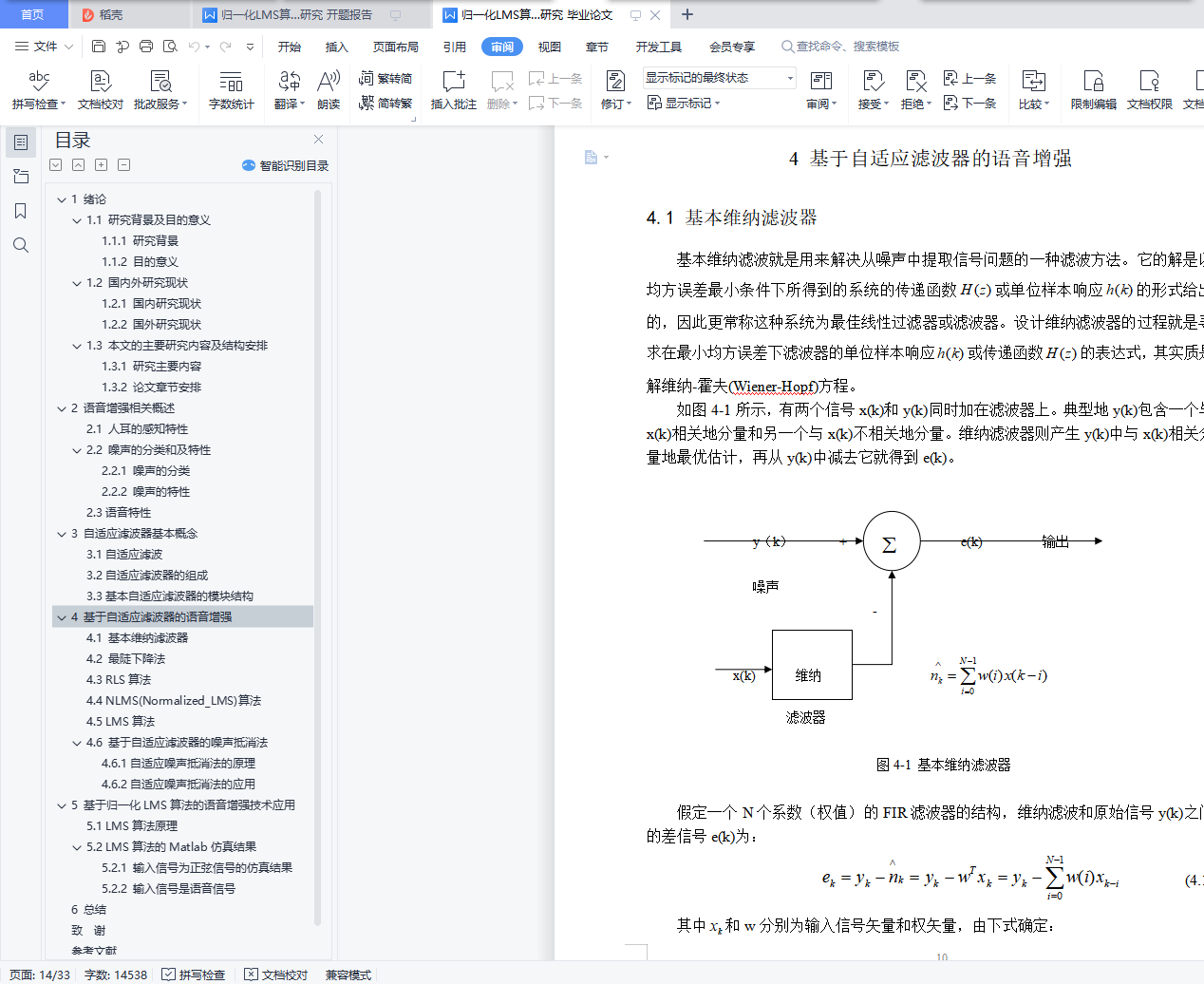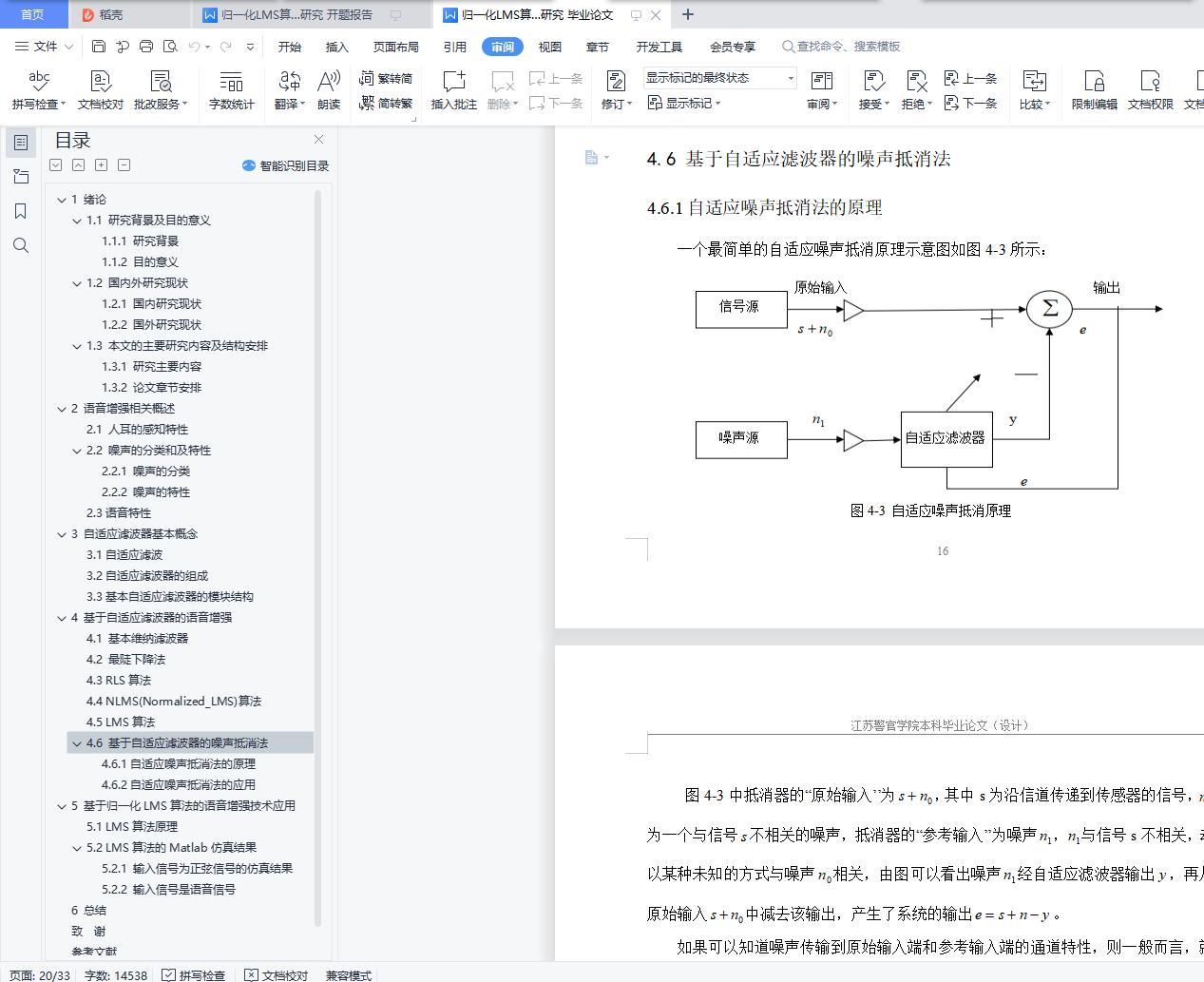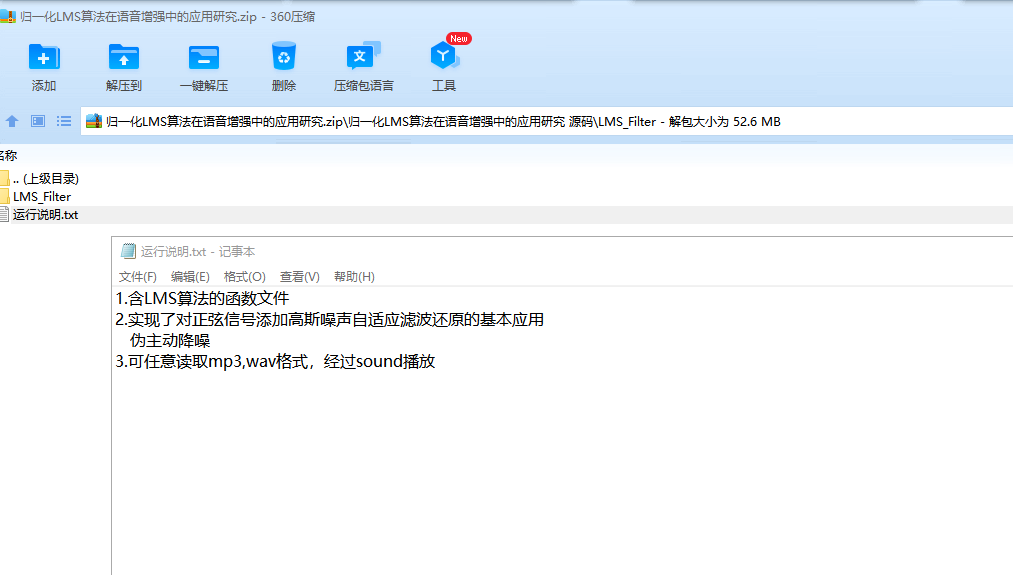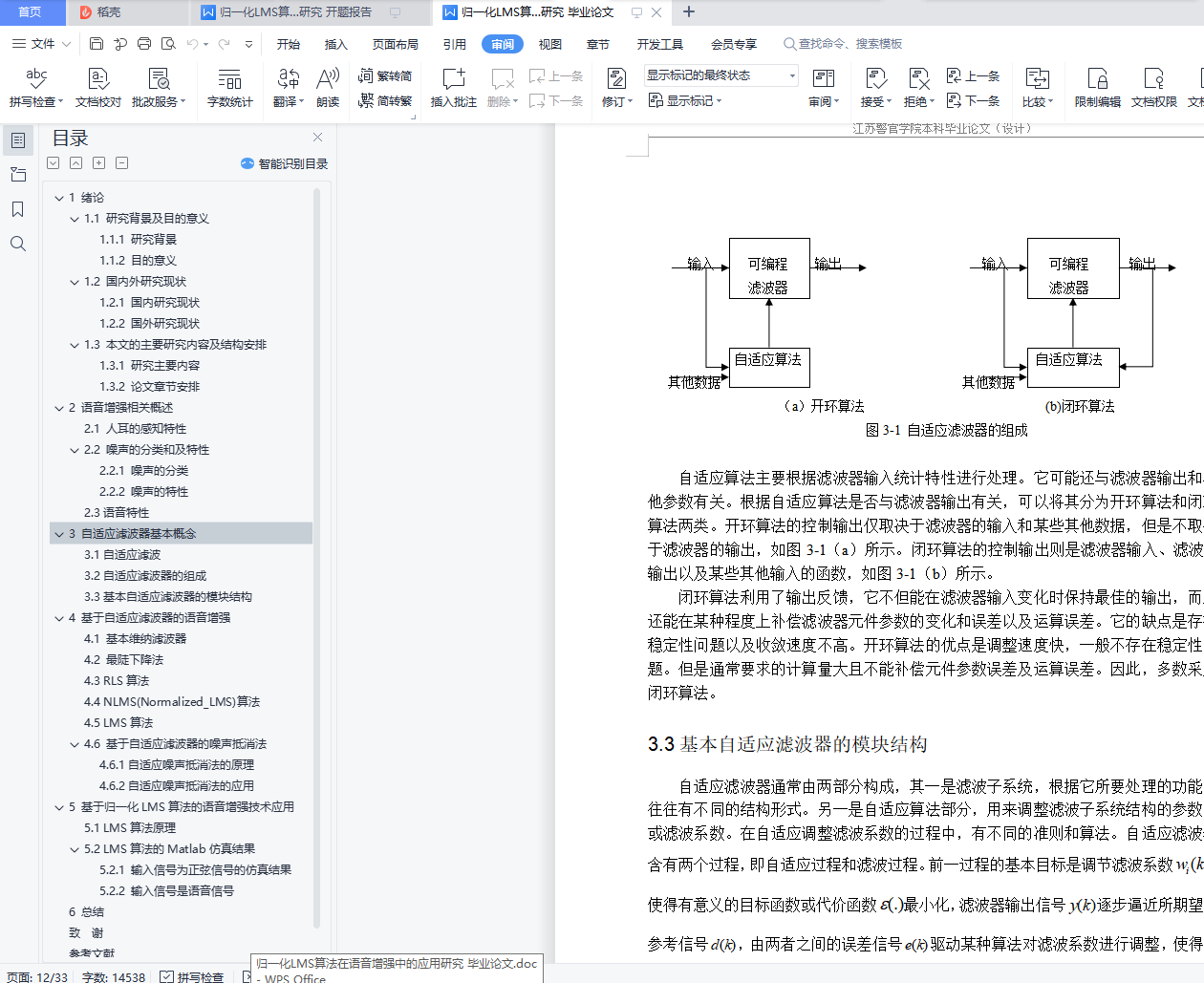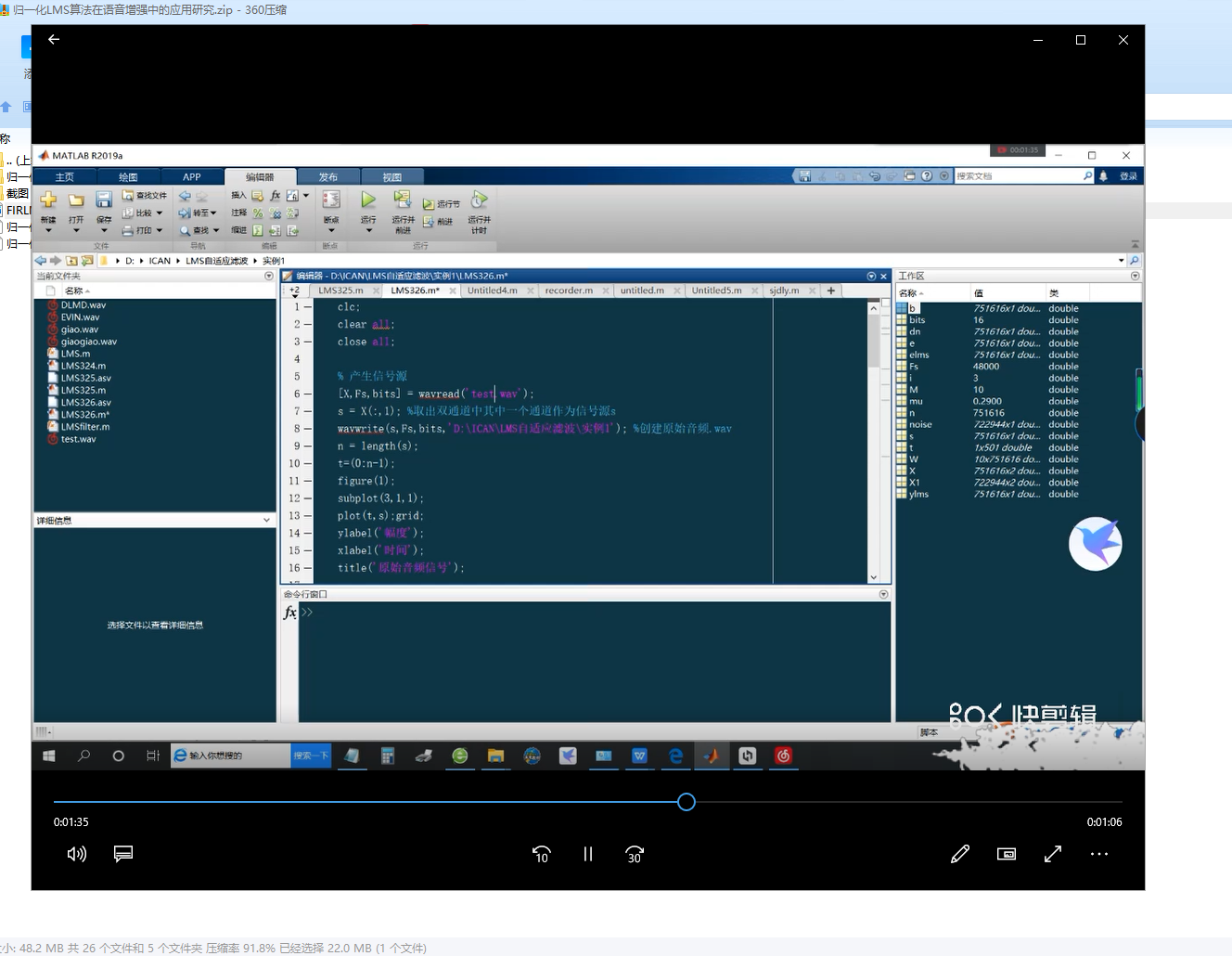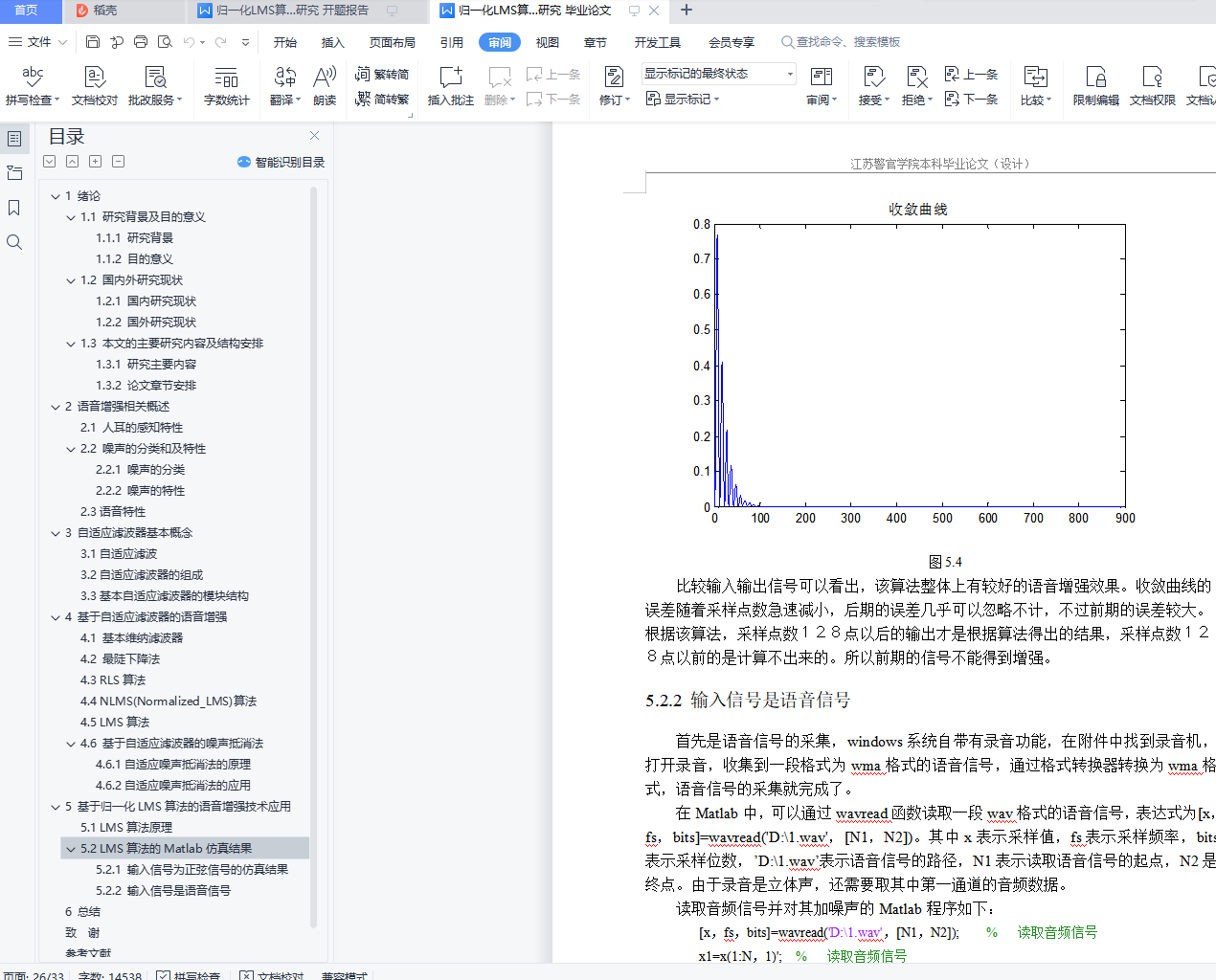题 目:归一化LMS算法在语音增强中的应用研究
专 业:格式同上
作 者:XXX
指导教师:XXX教授(多人指导请用逗号隔开)
摘 要
语音增强是一项应用广泛的研究,经过几十年的发展已经深入到人们生活的很多方面,尤其伴随手机的普及,可以说语音增强研究的成果已经时刻伴随着我们每一个人,影响着每一个人的生活。所以,对于语音增强算法的研究仍然是一个重要的命题.本次课题研究的是自适应滤波算法,在自适应滤波器的演变过程中,维纳最初奠定了最佳滤波器的基础,他提出的最佳线性滤波器的参数是根据最小均方误差准则求得的。
本文提出的基于SNR的变步长LMS算法的自适应语音增强系统的研究也正是在自适应滤波技术日益发展,在语音信号处理中的语音增强系统有重要地位的背景下提出的。主要学习研究最小均方算法(Least mean square, LMS),变分模态分解(variational mode decomposition,VMD)算法,并在研究的基础上提出了改进的归一化最下均方算法(Normalized Least Mean Square,NLMS)算法,通过对其仿真,表明修正的归一化LMS算法收敛速度比LMS算法快,而且失真极小,该算法相对于其他自适应算法而言具有更好的实用性。
关键词:语音增强,噪声,自适应滤波器;最小均方算法;LMS算法
Title:Application of Normalized LMS Algorithm in Speech Enhancement
Speciality: xxxx
Applicant: Xxx Xxx
Supervisor: Prof.XXX
ABSTRACT
Speech enhancement is a widely used research.After decades of development, it has penetrated into many aspects of people's lives, especially with the popularity of mobile phones.It can be said that the results of speech enhancement research have always been accompanied by each of us.Affect everyone's life.Therefore, the study of speech enhancement algorithm is still an important proposition.In this paper, the adaptive filtering algorithm is studied.In the process of the evolution of the adaptive filter, Wiener initially laid the foundation of the best filter, and the parameters of the best linear filter proposed by him are obtained according to the minimum mean square error criterion.
The research of adaptive speech enhancement system based on SNR variable step LMS algorithm is also proposed under the background of the development of adaptive filtering technology and the important position of speech enhancement system in speech signal processing.The minimum mean square algorithm (Least mean square,LMS) and variational mode decomposition (variational mode decomposition,VMD) algorithm are studied.Based on the research, an improved normalized lowest mean square algorithm (Normalized Least Mean Square,NLMS) algorithm is proposed.The simulation shows that the modified normalized LMS algorithm converges faster than the LMS algorithm and has minimal distortion.
Keywords:speech enhancement, noise, adaptive filter; minimum mean square algorithm; LMS algorithm
目 录
1 绪论
1.1 研究背景及目的意义
1.1.1 研究背景
1.1.2 目的意义
1.2 国内外研究现状
1.2.1 国内研究现状
1.2.2 国外研究现状
1.3 本文的主要研究内容及结构安排
1.3.1 研究主要内容
1.3.2 论文章节安排
2 语音增强相关概述
2.1 人耳的感知特性
2.2 噪声的分类和及特性
2.2.1 噪声的分类
2.2.2 噪声的特性
2.3语音特性
3 自适应滤波器基本概念
3.1自适应滤波
3.2自适应滤波器的组成
3.3基本自适应滤波器的模块结构
4 基于自适应滤波器的语音增强
4.1 基本维纳滤波器
4.2 最陡下降法
4.3 RLS算法
4.4 NLMS(Normalized_LMS)算法
4.5 LMS算法
4.6 基于自适应滤波器的噪声抵消法
4.6.1自适应噪声抵消法的原理
4.6.2自适应噪声抵消法的应用
5 基于归一化LMS算法的语音增强技术应用
5.1 LMS算法原理
5.2 LMS算法的Matlab仿真结果
5.2.1 输入信号为正弦信号的仿真结果
5.2.2 输入信号是语音信号
6 总结
致 谢
参考文献
附 录

